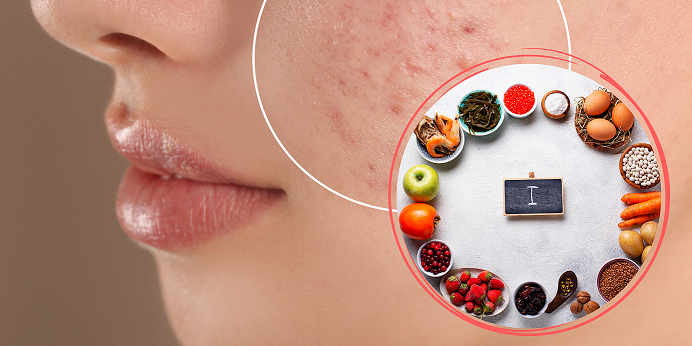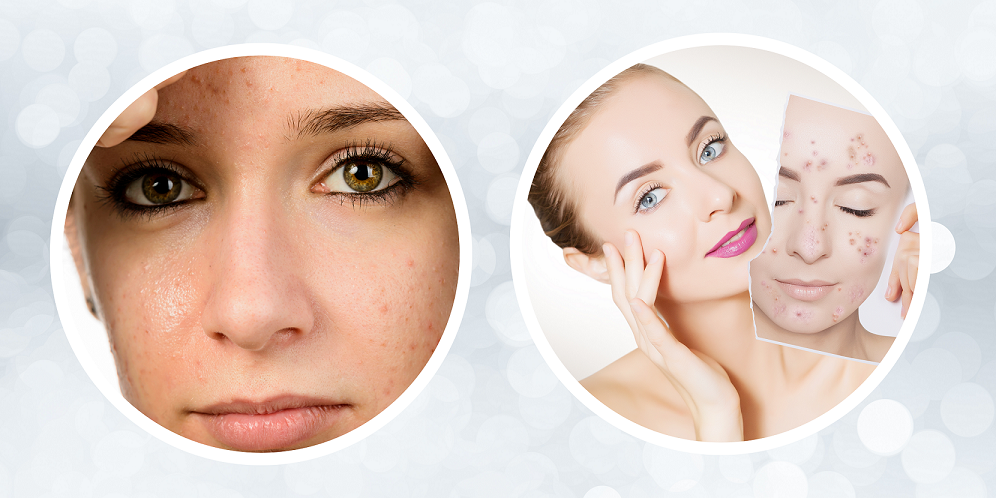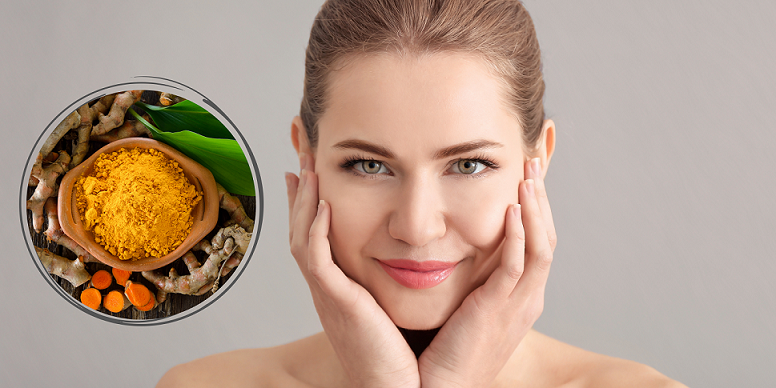
Exploring the Impact: How Do Iodides Cause Acne Breakouts?
Iodine, an essential dietary mineral, is often painted as a villain in skincare. But is this reputation deserved? Or is it a classic case of misunderstanding? As a licensed esthetician who specializes in acne, I've seen all kinds of skin issues with clients who have all kinds of diets. I had a client who was the teenage son of a sushi restaurant owner (foods high in iodides). His acne was abnormally challenging at a very young age. It's hard to fully identify if his testosterone levels were hitting high levels (at age 11) or if his diet was partially to blame. The acne issue is that it is tough to isolate any one cause of acne. But for the sake of this article, we will focus on Iodides and its correlation with people who suffer from acne breakouts.
Key Takeaways
- Unveil the complex relationship between iodine and acne, including potential triggers.
- Understand how iodides play an essential role in production of thyroid hormones and can lead to skin reactions when taken excessively.
- Balance diet with nutrient rich foods while being mindful of iodine intake for healthy skin management.
Unveiling the Iodine-Acne Connection

Iodine and acne connection
Many of us associate iodine with a healthy thyroid and a robust metabolism. But did you know this vital nutrient has a somewhat controversial relationship with our skin, specifically acne? The correlation between iodine and acne is intricate. The effect of iodine, including potassium iodide, on acne is complex. It can vary depending on the amount consumed, any supplemental use, and the individual's sensitivity.
Often, it's not the typical iodine intake that triggers acne but the overzealous consumption of iodine that can lead to acneiform eruptions—skin disruptions that resemble acne vulgaris but are not the same. The factors that can intensify the iodine-acne connection include:
- diet
- hormones
- iodized salt
certain supplements, such as multivitamins containing iodine or iodine supplements
If you want to learn more about things contributing to acne or what it takes to get clear skin, you can pick up my new book on acne, Filter Free & Flawless, for FREE (all you have to do is pay for shipping and handling).
The Role of Iodides in the Human Body
Iodides are the unsung heroes of our body, playing a pivotal role in the production of hormones by the thyroid gland. These hormones regulate the body’s metabolism and many additional essential functions. Therefore, iodides are integral to thyroid function, providing the necessary iodine to produce thyroid hormones. Without iodine, the thyroid gland may fail to manufacture adequate hormones; this can lead to hypothyroidism.
The iodide-utilizing hormones produced by the thyroid gland include thyroxine (T4) and triiodothyronine (T3). A deficiency of iodine can disrupt hormone production and lead to hypothyroidism. Insufficient iodine in the body can result in the thyroid gland not producing enough thyroid hormone, leading to this condition.
When Iodides Overwhelm the Skin
So, what occurs when our body contains high levels of iodides? High levels of iodine can evoke an acne-like reaction on the skin. However, this is not true acne but rather a skin reaction that will dissipate upon reducing one’s iodine over-consumption. This occurrence, known as iododerma, is when iodine is excreted through the pores, leading to irritation and subsequent flare-ups. Those with more susceptible pores are particularly vulnerable to this issue.
However, it’s not just an excessive amount of iodine that can cause trouble. Iodine deficiency can also result in an imbalance, exhibiting symptoms like:
- an enlarged thyroid
- hypothyroidism
- neck swelling
- weight gain
fatigue
Further research is necessary to understand the genetic factors involved in acne development and how they may aggravate acne.
Tracing Iodine Through Diet and Supplements

Iodine sources in diet and supplements
So where does this essential, yet potentially problematic, nutrient come from? Iodine can is found in a variety of foods and supplements, including:
- Seaweed and seafood
- Iodized salt
- Fortified bread
- Vegetables and fruits grown in iodine-rich soil
Various vitamin supplements
One should be aware that iodine supplementation can provoke side effects if consumed excessively or without considering individual needs. Thus, knowing where our iodine comes from and how much we consume is vital in managing our skin health.
Iodized Salt: A Culprit in Disguise?
One of the most common sources of iodine in our diet is iodized salt. In the United States, iodized salt contains 45 micrograms of iodine per gram. Although this might seem like a small amount, the consumption of iodized salt can add up quickly, especially if you’re fond of processed foods that often contain high levels of this product.
However, not everyone reacts to iodized salt in the same way. For individuals sensitive to iodine, alternatives to iodized table salt include Celtic sea salt, Himalayan pink salt, and Sel Gris (my favorite from the North Atlantic waters off the coast of France). These alternatives can provide flavor without the addition of iodine.
Supplemental Sources: Kelp and Beyond

Kelp supplements
Although iodized salt is a frequent source of iodine, it’s not the only one that requires our attention. Supplements, particularly those containing kelp, can also contribute to an excess of iodine in our bodies. Supplements like kelp can induce acne-like reactions when taken in large quantities.
Interestingly, the iodine content in kelp supplements can significantly fluctuate. Some supplements contain approximately 200 mcg of iodine per tablet. Therefore, it’s important to be aware of just how much iodine you’re consuming if you’re taking supplements, especially if you’re prone to acne breakouts.
The Hormonal Highway: Iodine's Influence on Acne Patients
When considering its impact on our hormones, the relationship between iodine and acne becomes even more intricate. Iodine is essential for the production of thyroid hormones in the body. The thyroid gland utilizes iodine to synthesize hormones that regulate metabolism and other vital functions. Both scarcity and excess of iodine can negatively impact thyroid hormone levels. Some key points to remember are:
- Iodine is necessary for the production of thyroid hormones
- Both too little and too much iodine can affect thyroid hormone levels
Imbalances in thyroid hormones can contribute to acne development
Even though there is no direct evidence to suggest that thyroid hormone levels directly influence acne, hormonal imbalances, including those associated with thyroid function, may be implicated in the development of acne. Thus, the complicated correlation between iodine and acne persists, growing more complex as we investigate further.
Working with clients who have had thyroid issues, I have seen some overproduction of oil in the skin, and if the skin can't exfoliate itself fast enough, acne will form. I only have seen this a few times, but it makes me question the correlation. It's just extremely difficult to provide a scientific study on this.
Thyroid Gland and Hormones: The Indirect Effect on Acne
The thyroid gland is instrumental in our overall health, including our skin’s health. The hormones produced by the thyroid gland influence skin physiology, fetal epidermal differentiation, barrier formation, hair growth, and wound healing. Therefore, any imbalance in these hormones, caused by either an excess or deficiency of iodine, can lead to various skin issues, including:
- Acne
- Dry skin
- Itchy skin
- Hair loss
Slow wound healing
It is essential to maintain a healthy thyroid function to promote healthy skin.
Research has indicated a strong correlation between hyperthyroidism and acne. Overactivity of the thyroid gland can result in alterations in the skin, hair, or nails, including the development of acne. On the other hand, an underactive thyroid can influence skin conditions like acne through hormonal changes.
Identifying and Managing Iodide-Induced Acne
Understanding the complex relationship between iodine and acne is as important as recognizing symptoms of iodide-induced acne and knowing how to handle it. Indications of an overabundance of iodine in the body may include:
- abdominal pain
- coughing
- delirium
- diarrhea (sometimes bloody)
- fever
- gum and tooth soreness
- loss of appetite
a metallic taste in the mouth
In addition, iodine toxicity on the skin may be evidenced by warm skin, cyanosis (bluish skin), and rash. Monitoring iodine consumption and maintaining a balanced diet can help manage iodide-induced acne.
Recognizing Symptoms of Excess Iodine

Symptoms of excess iodine
Recognizing the symptoms of excess iodine is an important step in managing iodide-induced acne. Dermatological manifestations of excessive iodine intake may include:
- blistering
- crusting
- irritation
- itching
- reddening of the skin
flare-ups of dermatitis herpetiformis
A balanced diet which includes a variety of nutrient-rich foods should be consumed to meet nutritional needs and to avoid the need for extra iodine supplementation.
The Scientific Consensus on Iodine and Skin Problems

Scientific consensus on iodine and acne
There’s a consensus within the scientific community that acne-like reactions result only from excessive iodine doses, while average amounts do not exacerbate acne. However, recent research has explored the link between iodine and acne, and the results have been promising with regards to utilizing iodine to reduce acne.
Limiting the consumption of iodized salt is a straightforward approach to avoiding an excessive intake of iodine. Additionally, the effect of iodine on acne might vary from person to person; thus, individual experiences may differ.
Navigating Myths and Realities
Wading through the world of iodine and acne can be challenging, particularly with numerous myths and misconceptions circulating. Despite common beliefs, no scientific data supports the assertion that iodine contributes to the onset or exacerbation of acne.
The current understanding of the acne-iodine connection, as per research, suggests that iodine has antimicrobial properties that may eradicate bacteria that cause acne; however, it may also exacerbate existing acne and cause acne-like eruptions. Hence, it’s essential to separate fact from fiction regarding iodine and acne.
Summary
In conclusion, the dance between iodine and acne is complex and full of intricate steps and patterns. While iodine plays a crucial role in our body’s function, an excess or deficiency can lead to various skin issues, including acne. Recognizing the symptoms of iodide-induced acne and maintaining a balanced diet can help manage this condition. But remember, every individual’s dance with iodine is unique—what works for one may not work for another.
Frequently Asked Questions
Why does iodine make me break out?
Excess iodide excreted through the sweat glands irritates acne-prone skin, leading to acne breakouts.
What does iodide do to skin?
Iodide is commonly used on the skin as an antiseptic, disinfectant, and bactericidal agent to prevent and treat infections. It has been used to activate the Nrf2 pathway in human skin, protect against UVB-induced damage, and reduce the secretion of pro-inflammatory cytokines from skin cells.
Does biotin cause acne?
It is not yet scientifically proven whether biotin causes acne, as its effects on the skin are still somewhat mysterious. Therefore, more research is needed to understand this relationship.
How can one balance their diet without overdoing iodine?
To avoid overconsuming iodine, it is important to be aware of iodine-rich foods such as salt, seafood, fish, algae, milk, and dairy products. A balanced diet incorporating various nutrient-rich foods should be consumed to meet nutritional needs and prevent unnecessary supplementation.



